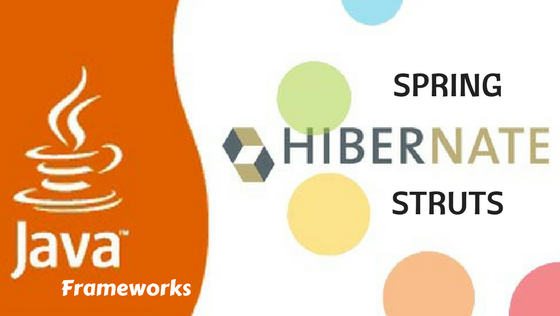
Spring is an open-source framework which helps to build the mobile application. It supports for ORM tool over straight JDBC. Spring helps Java programmer for code development, it also provides MVC flow, IOC container and Dependency Injector.
Choose Spring Training in Chennai and learn how to develop the app in minimal duration. Highly experienced candidates assist you to become an expert in app development process.
Spring Framework Modules
- Application Context Module
- Web Module
- MVC framework Module
- DAO Module
- JDBC abstraction
- Core Container Module
What are the benefits of Spring Framework?
- Reusability
- Decoupling
- It enables (POJOS) Programming
- MVC Framework – Spring comes with MVC model web app framework. This is highly configurable, it accommodates multiple technologies like JSP, Tiles, iText, Velocity and much more.
- Aspect Oriented Programming (AOP) – Spring frameworks support AOP, it also enables cohesive development by separating apps.
- Transaction Management – Spring Framework gives generic abstraction for transaction management.
- Java Database Connectivity (JDBC) – Spring provides best integration services with Ibatis, Hibernate and JDO.
- Inversion of Control (IOC) – Loose coupling achieves spring framework it also uses IOC technique. Spring gives dependencies to build an application.
What are the IOC types?
- Interface Injection – It is an object which is used for services.
- Constructor Injection – Dependencies provides a constructor parameter.
- Setter Injection – Dependencies are assigned via JavaBeans properties.
What is Hibernate?
Hibernate is most widely used tool in today’s world. It uses enterprise apps for database operations. Hibernate provides the reference implementation of Java Persistence API. People who are searching to learn about frameworks can choose Hibernate Training in Chennai. Within the short span of time, you will become an expert in app development process.
What are the benefits of using Hibernate Framework?
- Hibernate supports for XML and JPA annotations, that makes your code implementation independent.
- Hibernate is an open-source project, it is easy to integrate with Java Frameworks.
- Hibernate is fully object-oriented and understands concepts like polymorphism, inheritance and association.
- Hibernate supports for JPA annotations, it is tightly coupled with an application.
What are the collection types in Hibernate?
- Five types of collections are there:
- Array
- Bag
- Map
- List
- Set
What is Struts?
Strut is a framework, is based on standard technologies like JavaBeans, XML, Java Servlets and much more. Struts integrate with lots of technologies and it provides Model and View to the user. It interacts with some standard data technologies like JDBC and Enterprise Java Beans. Struts help to create extensible web and mobile application.
What are the components of Struts Framework?
- Custom Tags
- Java Server Pages
- Java Servlets
- Message Resources
Which file is used to control mapping information?
Controller uses configuration file “struts-config.xml”. It helps to decide which action is to use for routing.
What is Struts.xml configuration file?
Struts.xml is the key configure files, it is used to define mapping action and URL. If a user request is received by the controller, they use mapping function from the file.
What are the benefits of Struts Frameworks?
Struts Framework is based on Model-View-Controller (MVC), It is open source and cost-effective. A user can develop the application with lots of features.
Learn more about Struts via Struts Training in Chennai. Once learning Struts will definitely help to get a job in IT world.
Keep following this blog for more updates.
Related Courses: Angularjs Course in Chennai | Ethical Hacking Course in Chennai | Web Designing Course in chennai | RPA Training in Chennai

Great article! It’s really a pleasure to visit your site. Thanks for the detailed explanation. Really useful. Keep sharing more. Regards.
PHP Course in Chennai
Ethical Hacking Training in Chennai
JAVA Course in Chennai
SEO Course in Chennai
AWS Training in Chennai